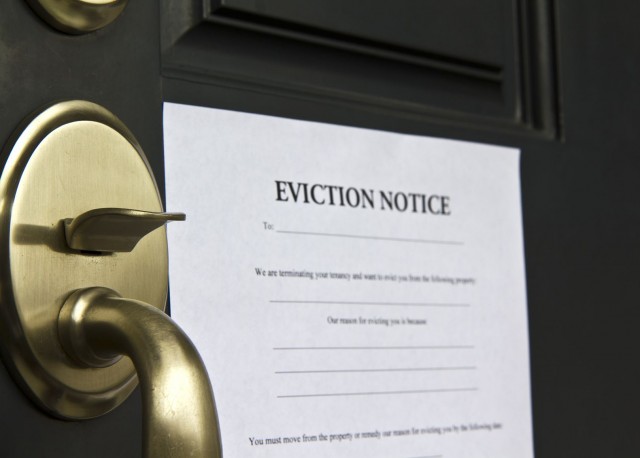Legal document in the form of a notice given by the landlord to the tenant indicating him the stipulated time in which he should vacate the leased premise.
TENANT EVICTION NOTICE
A notice to vacate is a legal document in the form of a notice given by the landlord to the tenant indicating him the stipulated time in which he should vacate the leased premise. A notice to vacate can also be given by the tenant to the landlord in writing, expressing his/her desire to vacate the premise at a certain date, as per the agreement. It is important to provide a notice to vacate in writing to ensure legal validity in case of any dispute arise between the parties.
ADVANTAGE
- All the information related to the property is mentioned in the notice to vacate.
- Date of vacating the premises in mentioned in it so that the parties gets an appropriate time to take any other step.
- Landlord can check the premises to ensure that there isn’t any damage to the things in the premises.
- Also, all the dues can be cleared before vacating the premises.
- Fill the Information Form
- Provide required Documents.
FAQ
1. What are the grounds for summarily evicting a tenant?
- Non-payment of rent • Nuisance, Assignment/subletting, or unlawful business • Lease violation • No cause/tenancy is over • Tenancy-at-will
2. How may a Landlord serve an eviction notice?
- By delivering a copy of the notice to the tenant personally, in presence of the witnesses. • If the tenant is absent from the place of residence or his place of business, by leaving a copy to a person of suitable age and discretion at either place and mailing a copy of the notice to the tenant’s place of residence or place of business. • If the place of residence or business cannot be ascertained or the person of suitable age and discretion cannot be found there, by posting a copy in a conspicuous place on the leased property, delivering a copy to a person there residing, if the person can be found, and mailing a copy to the tenant at the place where the leased property is situated.
3. When may a Landlord use a “no cause” eviction notice?
Only after the lease has expired.
4. What can a tenant do once he receives an eviction notice from the landlord?
Once the tenant has received the eviction notice, he may, no later than noon of the fifth full judicial day following the day of service: • Pay the rent demanded; • Move; • File an Answer with the Court that is referenced in the notice; or • File a Motion to stay in which you ask that the Court delay the eviction for up to 10 days. Please note, you may file this Motion to stay instead of filing an answer or may file a Motion to stay after the eviction order is entered.
5. What are the remedies available to the landlord if any substantial breach has been committed by the tenant?
- give the tenant a 14 day notice to terminate the tenancy; • give the tenant a 24 hour notice to terminate the tenancy (for causing significant damage or assaulting / threatening to assault the landlord or another tenant); or • apply to the Residential Tenancy Dispute Resolution Service or Provincial Court for an order terminating the tenancy.
6. Can a landlord evict a tenant from a commercial unit if the tenant is living in the rental space?
It depends on the facts and circumstances of the case. If there is any question regarding whether the tenancy is residential or commercial, then it should be decided accordingly between the landlord and the tenant by holding a meeting.
OUR SERVICES
Company Registration I Trademark I Copyright I Patent I GST I MSME
ISO Certification I Website/App Policy I Legal Documentation
Annual Compliance I Connect Consultant
Visit: Aapka Consultant to get Online Services of CA CS & Lawyers.











